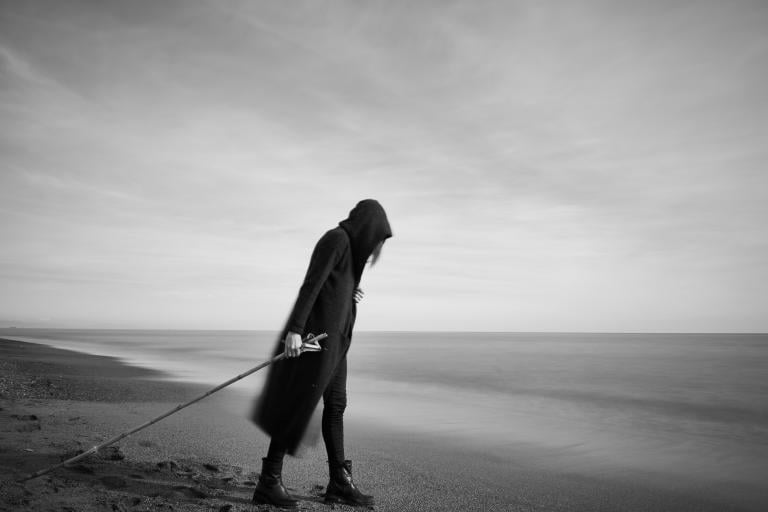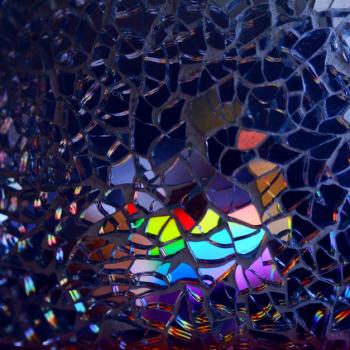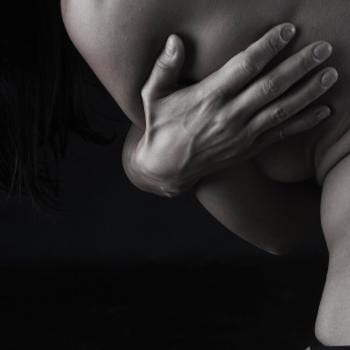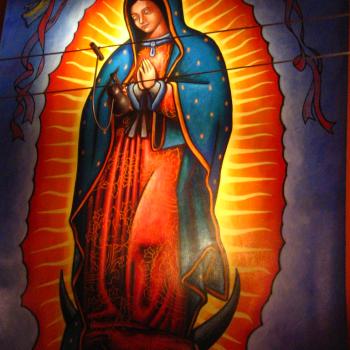
***TRIGGER WARNING: ABORTION***
A lot had been building up to that moment.
My mind was like a prisoner in a cage that refused to believe that it was imprisoned. My reality had been skewed, and I couldn’t see myself or my life situation clearly.
The suffocating darkness of depression had first begun creeping in right after that terrible night in the ER.
I had rolled my round, pregnant self out of bed at 2am after finding wet sheets all around me. Thinking I had wet the bed, I stumbled into the bathroom to find that I was actually bleeding uncontrollably. I woke my poor husband as calmly as I could before I got sick all over the floor, blood still soaking through my pajamas. My husband rushed to call our midwife while I tried to wrap my mind around the possibility that I was miscarrying in my third trimester.
At the hospital, we found out that my body was going into labor at 28 weeks. Our small Wisconsin hospital wasn’t equipped to care for preemies that small, so we were rushed by ambulance to another in the Twin Cities. Thankfully, the doctors were able to stop the contractions, but the bleeding persisted for another week, which was plenty of time for me to sit and worry. The next month was an endless whirlwind of doctor appointments, ultrasounds, tests, monitoring, ER visits, and dread that I was going to do something wrong and lose our baby. It didn’t help that the well-meaning nurses were constantly suggesting the possibility that I would develop blood clots and have a stroke.
Fear was an ever-present companion in the final stages of my pregnancy, even after my son was delivered by emergency c-section at 32 weeks.
He spent the next six weeks in the NICU an hour away from where we lived, so my husband and I drove to the hospital every night after work to hold our little boy and try to reestablish some semblance of normal. We had the option of staying in the NICU if we wanted; however, my sister’s battle with childhood cancer made me incredibly reluctant to stay in a hospital any longer than was necessary.
The next few months weren’t any easier.
The usual first time parent struggles were definitely factors: the sleepless nights, the exhaustion, the loneliness, the frustrations of breastfeeding and pumping. The fear and worry were still there, along with something new. So many other Catholic moms had told me not to worry about NFP after the baby was born.
“If you’re nursing, you may go a full year without getting your period,” they said, but that was not my lot in life. Like clockwork, my first postpartum period – signaling the return of my fertility – came the same week we brought our son home from the hospital. I was devastated. Here was something else to worry about; something that I could also potentially mess up. I was angry at God but tried to be positive, thinking that my knowledge of NFP was extensive enough from college and previous charting that I would be ok. We would all be ok.
Months later, I was not ok. My body’s signs were not making any sense to me, and my college notes had failed me. I couldn’t figure out when I was fertile or not fertile, so out of desperation, my husband and I abstained for months. I didn’t know what else to do.
I was absolutely terrified of getting pregnant again, especially so soon after a traumatic pregnancy and having a preemie to care for.
My body was not even close to being healed from the c-section. My mental health was even worse. I first started showing signs of postpartum depression in the NICU, but after a bad encounter with a nurse, I decided not to say any more. I admitted to my husband that I was feeling very low and didn’t want to eat, sleep, or hold our son. My husband panicked and told the nurse, who confronted me, asking if I wanted to hurt my baby.
I was able to hide the depression and anxiety for a while after that, though my husband did notice the increasing panic attacks and dark moods. It wouldn’t be until months later, when I began struggling with thoughts of self-harm and suicide, that my husband and I reached out together for support.
I was six months postpartum when I suspected I might be pregnant. It began as a passing thought and soon grew into a complete obsession.
Finally one afternoon I bought a pregnancy test from the local supermarket and drove to our parish. I don’t remember why I decided to take a pregnancy test in our dinky parish bathroom, but that’s where I found myself when I perched on the toilet seat, cooing to the baby in his carseat, willing myself not to cry. The wait for the results dragged on, and my ill mind became despondent:
What will my husband say if we’re pregnant?
I must have charted wrong. I’ve been trying so hard.
The stupid method doesn’t seem to be working.
I can’t have another baby right now.
I can barely handle the one I have.
I’m not a good mom.
Something is wrong with me.
I don’t feel like I can do anything right.
If I’m pregnant, I’ll just have to get rid of it as soon as possible. I don’t have any other option.
I looked down at the test, trying to catch my breath. The tiny words “NOT PREGNANT” had finally appeared.
It was only then I realized what I had considered. Waves of shame flooded over me.
How could I ever think something so awful?
In that moment, despite my postpartum depression, I understood something clearly: I had never imagined that I, a young faithful Catholic who had always wanted to be a mother, would consider abortion. And yet, here I was with those thoughts and that shame.
If I could consider abortion, was it so hard to imagine women in worse situations than me would consider it?
It was a humbling moment for me. I’ve never looked at the abortion debate the same way again. Do I want babies to be killed? Absolutely not.
But I have some perspective now. I understand that desperation and fear lead you to consider horrible things.
Please, fellow Catholics, as you debate with people about these new abortion bills in Georgia and elsewhere, consider how desperate women have to be to consider abortion. These aren’t murderous witches out for blood. They’re terrified women, like me.
Have mercy on our sisters who are faced with such circumstances. Be the person who can lead them toward the light of hope and healing, not condemnation.
Please be gentle.
Image source: https://www.pexels.com/photo/woman-in-black-cloak-with-fishing-pole-standing-in-beach-2174618/












